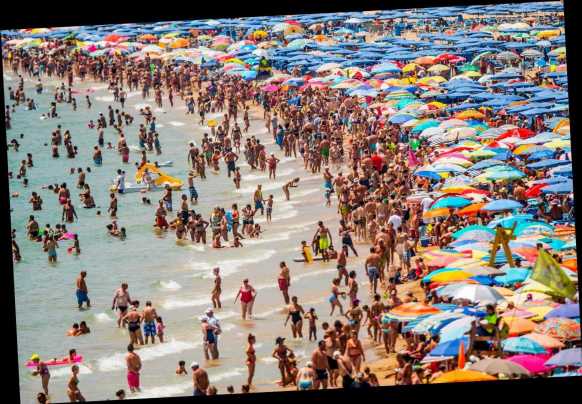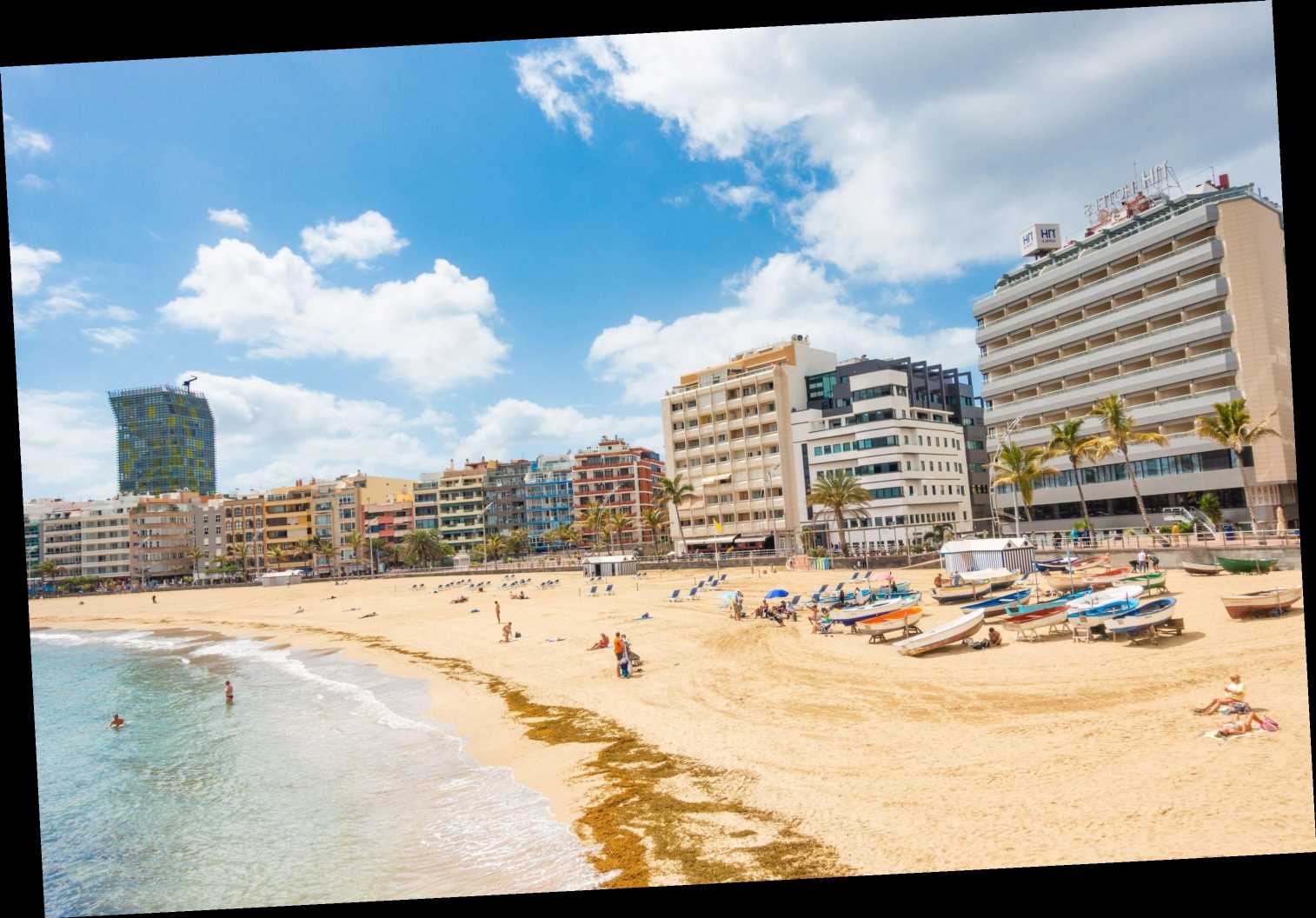For years, Zack Snyder’s fans have yearned for the chance to see what the filmmaker would have done had he had the chance to release his version of “Justice League” into theaters when the film opened in November 2017. Instead, the superhero movie has endured one of the most tortured journeys a modern-day blockbuster has ever taken: After battling with Warner Bros. over his darker and lengthier version of the film, Snyder ultimately stepped away from the project in the wake of the death by suicide of his daughter Autumn. Warner Bros. then tasked Joss Whedon (“The Avengers”) to re-write, re-shoot, and re-edit Snyder’s film into a shorter, less angsty and funnier film. But when that “Justice League” ultimately opened in theaters, it pleased almost no one, lost money, and mired the studio in years of bad press — first from noisy fan discontent with Whedon’s version, then from allegations by stars Ray Fisher and Gal Gadot of misconduct by Whedon while making the film.
All the while, Snyder’s unfinished version of “Justice League” sat in a vault until unrelenting fan pressure to #ReleasetheSnyderCut finally pushed the studio to do just that.
And yet, so much time has passed between 2017 and 2021 that, when asked to compare the four hour “Zack Snyder’s Justice League” debuting on HBO Max to what he would have done had his version opened in theaters instead, the 55-year-old filmmaker balks at even the premise of the question itself.
“The theatrical cut is a theoretical thing at this point,” Snyder said to Variety roughly 12 hours before the Snyder cut’s HBO Max premiere (it dropped on March 18 at 3:01 a.m. ET) . “I’m not sure that the comparison is possible anymore. The four-hour version of the movie is exactly the way I would have made the movie if I made it with zero oversight. There’s no studio saying, ‘Don’t do that, the kids will like it’ — that kind of thing. So I guess my answer is the theatrical version — I don’t know that they’re related to each other anymore.” Snyder chuckled. “I don’t know if that makes sense.”
In a conversation with Snyder and his wife and producing partner Deborah Snyder, the duo explained how they arrived at the Snyder cut’s four-hour runtime, what Ben Affleck’s Batman and Henry Cavill’s Superman would have done had Snyder’s plan for the full “Justice League” trilogy come to pass (hint: It involves DC Comics big bad Darkseid and the “anti-life equation” for total control over other beings’ free will), and how their film and its fans have honored their late daughter’s legacy.
You said that the four-hour version of “Justice League” is the movie that you wanted to make without input from anyone else. That is still a long time for anyone to experience a single story in a feature film. How did you balance your desire to tell the story in a complete way with your audience feeling restless with a four-hour movie?
Zack Snyder: I didn’t contemplate it because I knew that binge culture is 100% fine with watching four episodes of a one hour show back-to-back. People don’t bat an eye at that in this modern world. What use is editing myself and censoring the movie when this was the story? But I’ve seen it in the theater, in IMAX. It has one intermission at about two hours and 20 minutes. And it plays, I think, incredibly well. It’s very, very watchable, even in the theater. So I think at home, where you can pause it and go to the bathroom and get your snacks — that’s really up to the way that people want to consume it.
Deborah Snyder: HBO Max, they were able to put in indentations in the timeline [for the film], so you very easily go to each [chapter] of it. You know, listen, we know the diehard fans are gonna watch it straight through, but other people might only watch a couple parts at a time and take a break.
Zack Snyder: I was talking to a bunch of fans who’ve seen it early, and they’ve seen it three times times in a row.
You were completing this movie as you were also working on “Army of the Dead” for Netflix. How did you manage your time? Did you sleep?
Zack Snyder: We definitely would work on the weekend. Because we had nowhere else to go, I would just get up early and stay late. The good thing about “Justice League” was it was mostly a review process, because the cut was pretty much done. We were tweaking, but it was mostly, the visual effects shots would come in, and we would look at them.
Deborah Snyder: In June, we were basically done with “Army,” but then we had to do the additional photography when we replaced Chris D’Elia [who has been accused of sexual misconduct], and then we were just waiting for all the visual effects. I think it would have been harder if we were actively working on the cut. Because of COVID, we had an Avid set up here. We have a theater that’s underground, and we were able to do all that visual effects review work just at the house, and go back and forth from project to project. We had the same editorial team working on [both films], so it streamlined the process, more than if we had to go to different post-production offices. That’s one way that COVID benefited us.
You brought Ben Affleck back for the “Justice League” epilogue that you shot last year because you just couldn’t believe that Ben’s Batman and Jared Leto’s Joker had never had a chance to actually face each other. Did Ben’s version of Batman get the arc that you were hoping for with these movies?
Zack Snyder: I mean, look, there were supposed to be two more movies, so there was always more story to tell with Ben. But I’m pretty happy with the arc that this movie afforded me and the way we ended Ben Affleck’s Batman. I just think that he learned a lot. He’s a different person than he was in “Batman v Superman.” He’s on his way toward being the kind of the dad of the Justice League. But there was more story.
What would that story have been?
Zack Snyder: If you go to Dallas, and you go to the AT&T exhibit, it has the entire 40 foot dry-erase board that has a very detailed outline of the next two movies. It was basically the fall of Earth to Darkseid, and then, in the post-apocalyptic world, Flash and Cyborg and Bruce figure out a way to jump Flash back in time to prevent Lois’ death so Superman doesn’t succumb to anti-life. Then the third movie was the uniting of all the forces of Earth to defeat Darkseid. It was a giant, “Lord of the Rings”-style battle movie.
Speaking off, the hashtag #RestoretheSnyderVerse, referring to this plan, is already starting to circulate on Twitter. What do you think when you see something like that, knowing that now that the fans have successfully convinced Warner Bros. to let you complete this film, they might now start pressuring the studio to let you complete your vision for the full trilogy?
Zack Snyder: Yeah, I’m not sure that’s a thing. I think it’s amazing and I love the fans and I love that enthusiasm. Like I said before, the truth is, in retrospect, it’s more likely that they would have made a sequel [to “Justice League”] than going back and redoing a movie that had already been released. But I just think that like this was a Herculean effort for all of us, and Warner Bros., they have their big plan for the DCU, even to the point where they told me — and I’m fine with it — that the theatrical cut of “Justice League” is what they consider canon for their universe. So I’m just like, you know, this little Elseworld experiment. I’m very grateful for the opportunity to finish the movie. But, yeah, I don’t know if there’s anything else in the future.
Deborah Snyder: Also, it’s been such a journey to get here. We finished the movie, like, two weeks ago, because there were so many versions to be done and it was like so against the wire. It’s nice to kind of just enjoy the moment, you know? Like, take a breath.
What was your reaction to the news that Ta-Nehisi Coates was going to be writing a Superman movie for J.J. Abrams’ company Bad Robot?
Zack Snyder: That sounds amazing. I was very, very excited about that. That’s a great idea.
Deborah Snyder: We love J.J., so to have him involved in something like that, that’s really terrific.
Zack Snyder: Yeah. It seems like… I mean… I was just like, Okay, wow. Good idea!
Finally, if this is too personal, please tell me: I keep thinking about how tied up this entire project has been with your daughter Autumn. How do you feel now that you’ve finally reached the end?
Zack Snyder: It’s been cathartic for us. It’s never not a struggle. It’s never not painful and difficult. Even in honoring her, it’s still… The wound is fresh. You know, a lot of lives have been saved by the money that’s been raised by these kids for suicide prevention. There’s no two ways about it. That’s an amazing, powerful legacy that she’s given us and inspired me as a filmmaker and as a father to kind of take whatever skills that I might have, and apply it to this. I’ve said, you know, if I had another job, I probably would be dedicating the cabinet or the house or the pottery or the poem to her. But I happen to be a filmmaker, so I did a four-hour movie.
Deborah Snyder: It was a difficult decision, I think, initially, to be public about it. But I think that a lot of the problem of mental illness is that there’s such a stigma attached to it and oftentimes people feel alone. We felt like to be able to share this story, as a public figure, maybe it could help other people. A lot of people a lot of fans have reached out to talk about the movies and to talk about like the stories that related to them and how sometimes they were in a dark place and it brought them some solace or understanding, or it just helped them get through something. So I think being open to sharing things that are painful sometimes, it can help the healing process.
This interview has been edited and condensed.
Read More About:
Source: Read Full Article

